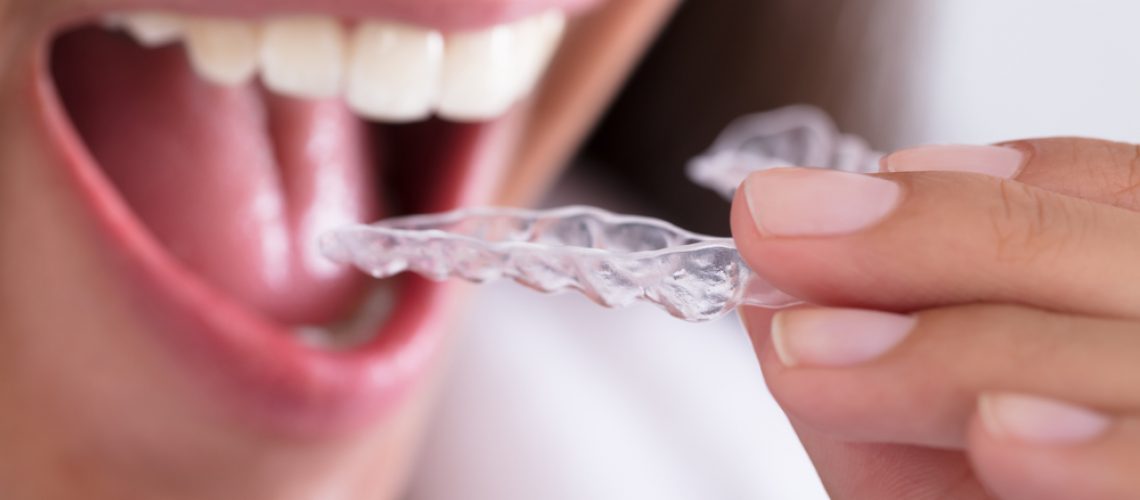Bruxism, commonly known as tooth grinding, is a severe dental condition affecting people of all ages, but more common in adults. The condition refers to the practice of grinding and clenching teeth, which usually occurs unconsciously, while asleep or awake.
Typically, the sufferer is completely unaware they are doing it, so it is only noticed by a partner or parent, and most commonly during a general check-up at the dentist.
However, when noticed, it’s essential that it is treated as soon as possible.
The Symptoms of Bruxism
Teeth grinding is obvious to a specially trained dentist. The most common dental symptoms are worn upper and lower teeth. Other signs the patient may notice are:
- Aches in the head, neck, ear and even eyes, in the morning
- Tender and sore jaw and facial muscles
- Feeling tired in the afternoon
- Snoring, choking or gasping during the night
What Causes Tooth Grinding
Most dentists will tell you that bruxism is a result of stress. This is only part of the story. In fact, disturbed sleep is also a common symptom. Sleep is disturbed by two common conditions. First airway collapse such as Obstructive Sleep Apnoea (OSA), or snoring, causes either complete or partial blockage of the airway. Secondly pain is any part of the body will disturb sleep as does Stress, which worsens all disease symptoms. Commonly these patients are mouth breathers and this is heavily implicated with increased rates of sickness.
What Causes These Breathing Difficulties
When lying down, the tongue and/or soft palate drops down and back due to the pull of gravity and the negative pressure created in inhaling, either partially blocking (snoring) or completely blocking (OSA) the airway. The blockage means the patient has to constantly wake up to open the airway and allow the air to flow. The process repeats when they fall back asleep – their tongue drops down and blocks their airway and they choke till they wake and their muscles contract and open the airway and allow air to flow. As the airway is closed the patient is choking!
Bruxism occurs when the lower jaw moves forward and back to open the airway. As it makes this movement, the teeth rub together and slowly wear away. If there I also acid regurgitation, which is common, then the acid softens the teeth and they wear away quickly.
The Importance of Treating Bruxism
If not dealt with, extensive wearing of the teeth will occur along with cracks and fractures in the teeth. Teeth with cracks above the gum line can usually be saved, but, if a break occurs to a section of the tooth below the gum line, it will have to be extracted and treated with a bridge or an implant.
The increased force placed on the jaws during grinding also affects the jaw joints (TMJ), which can create damage, clicking, locking and extreme pain.
Obviously, treating the grinding is essential for jaw and dental health. But identifying the problem is also vital in saving patients from potentially deadly sleeping behaviours. An holistic dental approach will take these factors into account and ensure that more than your teeth and jaws are treated, and the sleep and pain issues are addressed.
How to Treat Teeth Grinding
Diagnosis is the key, and not just dental problems but all the causes of disturbed sleep and pain. An thorough evaluation is necessary in order to map out all the causes of grinding and create a complete treatment plan that addresses all the causes. The evaluation will gauge the extent of wear on your teeth and check it against normal levels of teeth wear. For example, 1mm of wear is normal over a 100-year lifespan. Commonly we see 300 or 400 years worth of tooth wear.
Your dentist will also ask specific questions via a comprehensive questionnaire. A home or in hospital sleep study may also be recommended. A sleep study involves spending time at a sleep clinic in order to assess the quality of your sleep, and to assess if you are suffering from any airway obstruction or unrecognised areas of inflammation and pain.
The most common treatment for tooth grinding involves the wearing of a nightguard while sleeping. This plastic mouthguard helps to protect your teeth from grinding and is custom-made to ensure it suits the specific contours of your teeth and that it provides a comfortable fit. The tooth grinding causes tooth wear and this causes the ligaments of the Jaw Joints to be come stretched. once they are stretched then the internal structures of the Jaw Joints become permanently damaged and the purpose of the splint therapy is to restore the ligaments of the jaw joints as close to normal as possible. For snorers and OSA sufferers, dental sleep appliances will be recommended, that protect your airway from collapsing. Often a referral to an Ear, Nose and Throat surgeon is needed to assess the patency or openness of your nasal airway.
Cosmetic Dentistry
If you have worn through your teeth enamel, white fillings may need to be placed in cracks or bonded to the surface of your teeth, in order to increase strength and function and prevent further damage.
Cosmetic dentistry techniques such as crowns, veneers and whitening, can also be used to restore teeth to their proper aesthetic.
If your dentist identifies significant damage to your teeth caused by grinding, you may require some form of cosmetic surgery to restore your teeth to their original condition.
Reduce Stress
While the link between stress and bruxism isn’t as strong as it once was, it still plays a role. Anything you can do to reduce your stress levels will assist in reducing the severity of your condition. Good relaxation techniques include:
- Listening to relaxing music
- Reading a good book
- Indulging in a warm bath before bed
- Learning meditation and breathing techniques and practising these daily
If you, or someone you love, is suffering from bruxism, they need to visit a dentist right away. The condition is severe and could point to something more sinister and even life-threatening. Stopping tooth grinding will reduce the load on your jaws, remove stress from your life and allowing you to and your partner to enjoy a good night’s sleep.
If you would like more information or to book an appointment, please contact us.


